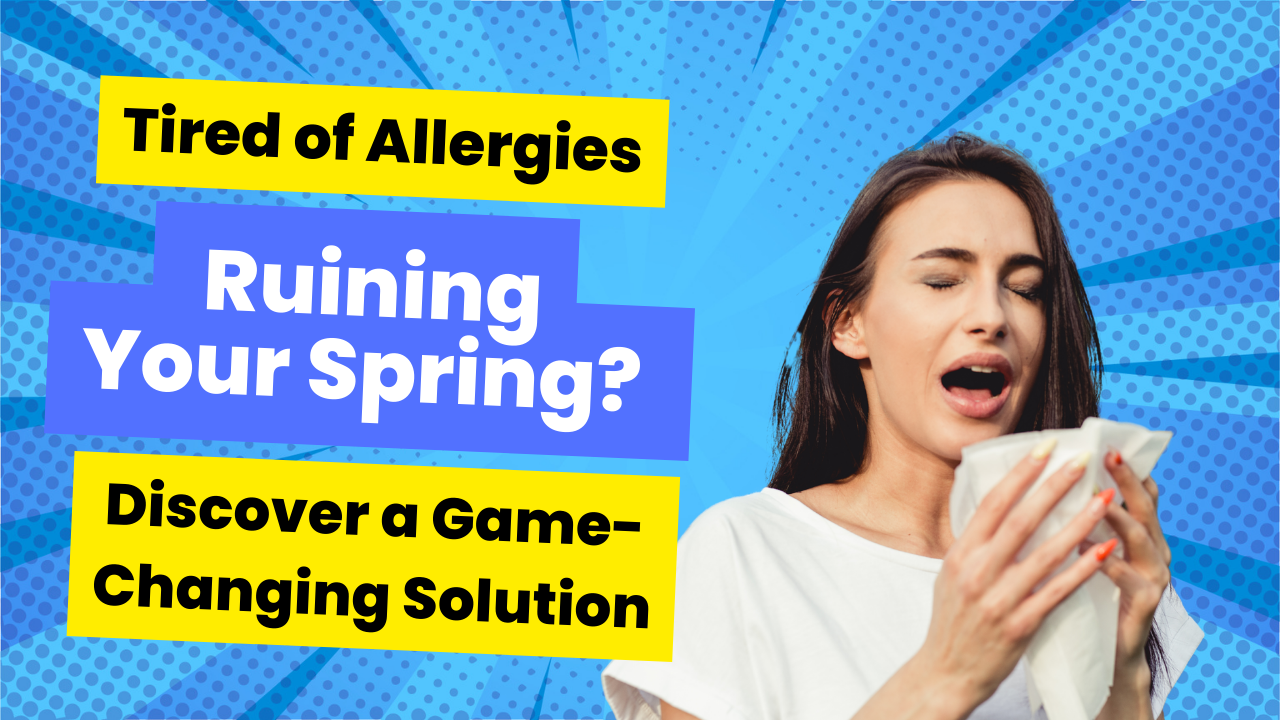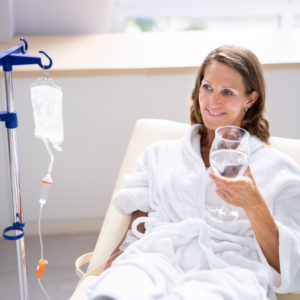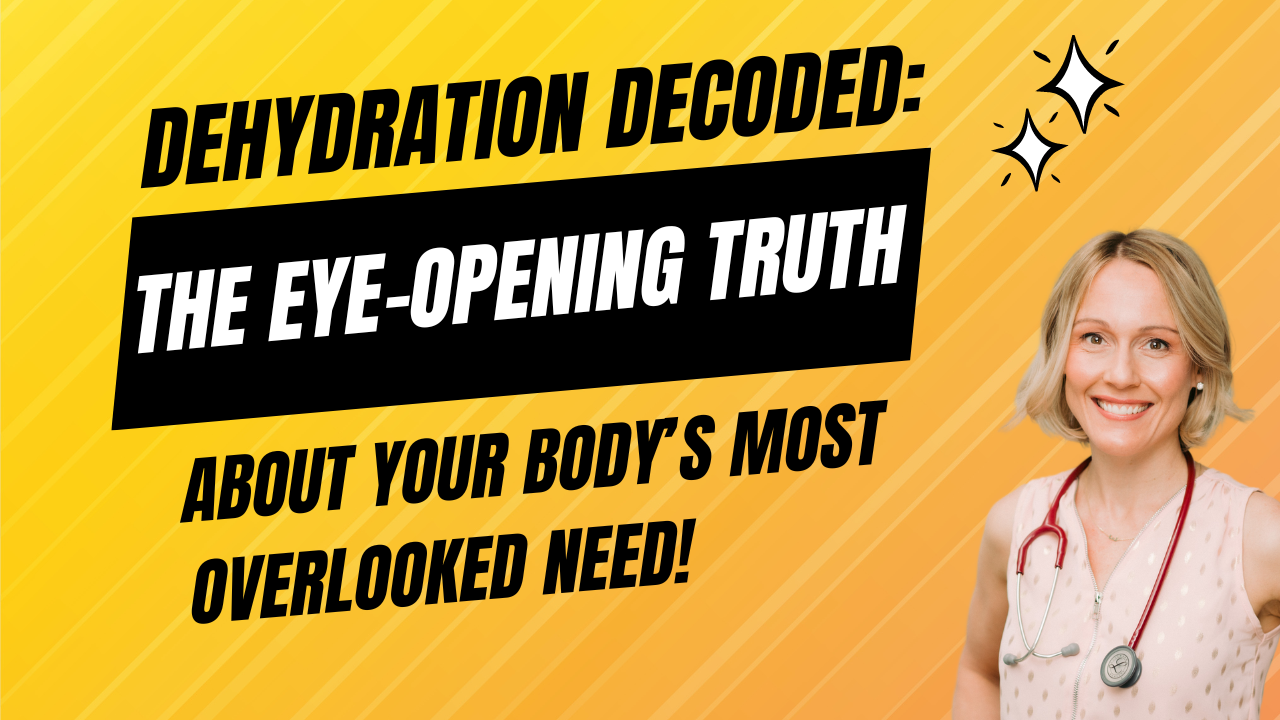Battling Allergies This Spring: Find Out How IV Vitamin Therapy Can Help
Ah, spring in Toronto, Ontario! The birds are chirping, the flowers are blooming, and… wait, what’s that sound? Is it the gentle rustling of leaves in the breeze?
Nope, it’s the collective sneezing of allergy sufferers across the city! If you’re one of the unlucky folks who find themselves in a daily battle with pollen, dust, and dander, fear not!
While you might be tempted to lock yourself indoors and wait for winter to return, there’s a new superhero in town: IV Vitamin Therapy!
Picture this: you, lounging comfortably in a chair, feet up, chlorophyll water at your side, while our team of skilled Naturopathic Doctors and Phlebotomists swoop in to save the day. With a customized IV drip they unleash a powerful mix of vitamins, minerals, and antioxidants directly into your bloodstream. It’s like giving your body a secret weapon to fight off those pesky allergens!
How Can IV Vitamin Therapy Help with Allergies?
Boosting the Immune System
Allergies occur when the immune system overreacts to harmless substances like pollen, dust, or pet dander, secreting a flood of histamines into your body. IV Vitamin Therapy can help support and regulate the immune system, stabilizing those reactive histamines, by providing high doses of essential nutrients such as vitamin C, B vitamins, zinc, specific antioxidants and anti-inflammatory nutrients. These nutrients play crucial roles in immune function and may help the body respond more appropriately to allergens.
Reducing Inflammation
Allergic reactions involve inflammation in the body, which can lead to symptoms like swelling, redness, itchiness and discomfort. Some nutrients commonly used in IV Vitamin Therapy, such as vitamin C, magnesium, bicarbonate and glutathione, have anti-inflammatory properties. By delivering these nutrients directly into the bloodstream, IV therapy may help reduce inflammation and alleviate allergy symptoms.
Combating Oxidative Stress
Allergies can increase oxidative stress in the body, which contributes to inflammation and worsening of symptoms. Antioxidants like vitamin C and glutathione, which are often included in IV Vitamin Therapy formulas, help combat oxidative stress. By providing high doses of these antioxidants, IV therapy may help reduce the impact of oxidative stress (and the resultant inflammation) on allergy symptoms.
Improving Nutrient Absorption
Some individuals may have difficulty absorbing nutrients from food or oral supplements due to digestive issues or other health concerns. IV Vitamin Therapy bypasses the digestive system, ensuring that the body can utilize the nutrients more efficiently. This improved absorption may help optimize nutrient levels in the body, supporting overall health and potentially reducing the severity of allergy symptoms.
Enhancing Hydration
Proper hydration is essential for overall health and can also influence the severity of allergy symptoms. Dehydration can lead to thickened mucus and worsened congestion. IV Vitamin Therapy typically includes a saline or sterile water solution that helps improve hydration levels in the body, which may help thin mucus and ease symptoms like stuffy nose and congestion.
It’s fascinating how many people coming in for allergy relief with IV Vitamin Therapy end up discovering additional health perks they hadn’t thought of.
It turns out, the very nutrients we use to ease those pesky allergy symptoms—think vitamin C, magnesium, and B vitamins—also tackle other aspects our bodies have been silently struggling with.
Energy levels get a boost, immune systems gear up, and overall inflammation takes a dive. It’s like feeding several birds with one seed, in the winter when food is more limited!
So, as we brace ourselves for the spring here in Ontario and the inevitable allergy season that comes with it, it’s worth thinking outside the box.
IV Vitamin Therapy isn’t just about getting a break from sneezing and itching; it’s a chance to give your whole body an uplift and renewal. And who knows? You might just feel better in ways you hadn’t expected.
Curious about how this all works and whether it’s the right move for you? We’ve got you. You can easily book a free discovery call with our certified IV Therapy Naturopathic Doctors.
Let’s face it, nobody wants to spend the beautiful spring season battling allergies. So, let’s explore how a tailored IV therapy plan could not only clear up those allergies but also leave you feeling stronger, more energized, and ready to fully enjoy the season. Trust me, your body will thank you for it.”
So if you’re ready to break free from the allergy cycle of depletion and rediscover what it means to thrive, consider exploring IV drip hydration. Click here and book a free consultation with a trusted provider like Higher Health Naturopathic Centre and IV Lounge to learn more about how this innovative treatment can support your unique wellness journey.
Because you deserve to feel your best – and with IV drip, that goal may be closer than you think.
References:
Intravenous Immunoglobulin for Airway Inflammation: Another study found that IVIG could attenuate airway inflammation effectively by inducing regulatory T cells that suppress allergic responses, particularly beneficial for conditions like asthma triggered by allergies (Massoud et al., 2012).
Intravenous Immunoglobulin (IVIG): IVIG has demonstrated anti-inflammatory effects in treating allergic diseases. Studies have highlighted its role in decreasing serum IgE levels and modifying the immune response, which can be particularly beneficial in severe, resistant allergic conditions (Rabinovitch et al., 1999)
Intravenous Vitamin C: This treatment has shown to reduce allergy-related symptoms significantly. High-dose vitamin C administered intravenously can alleviate both disease-specific and nonspecific symptoms like fatigue and sleep disorders in patients with allergic diseases (Vollbracht et al., 2018)






